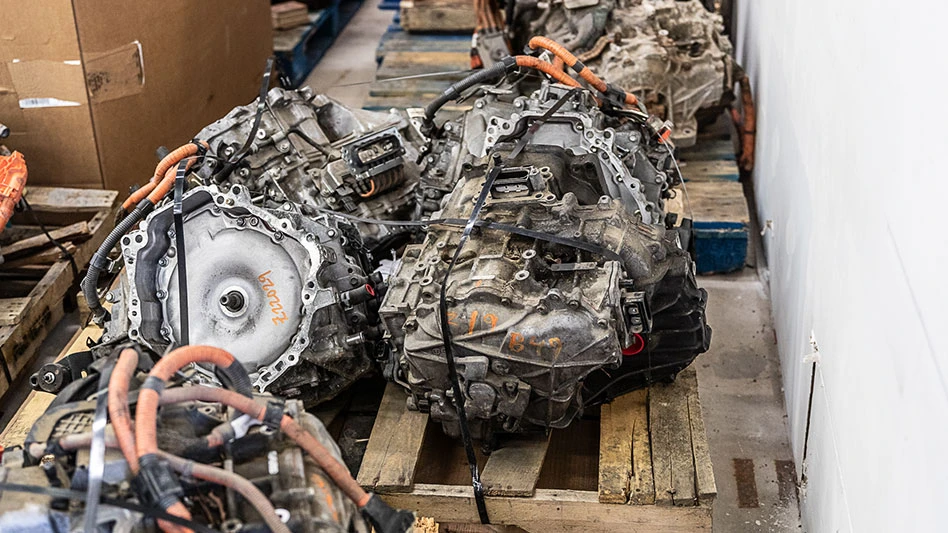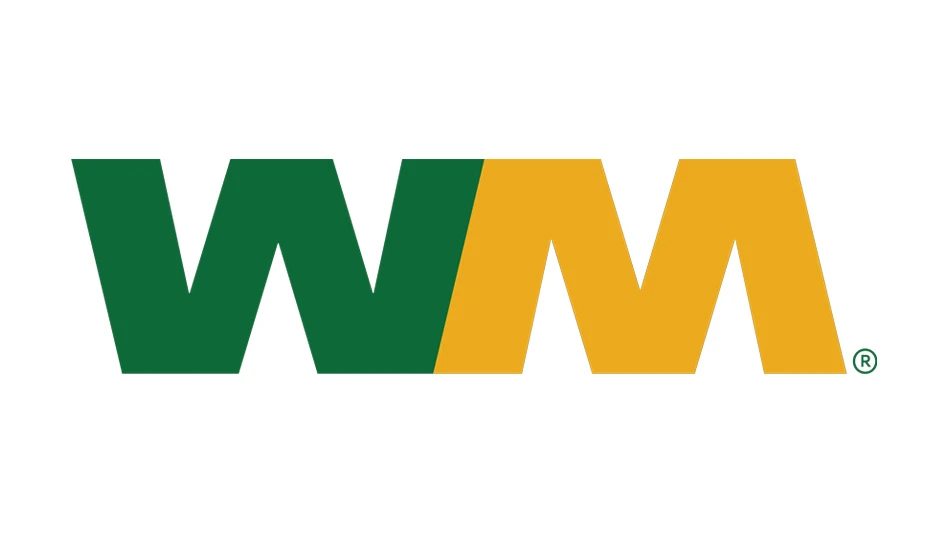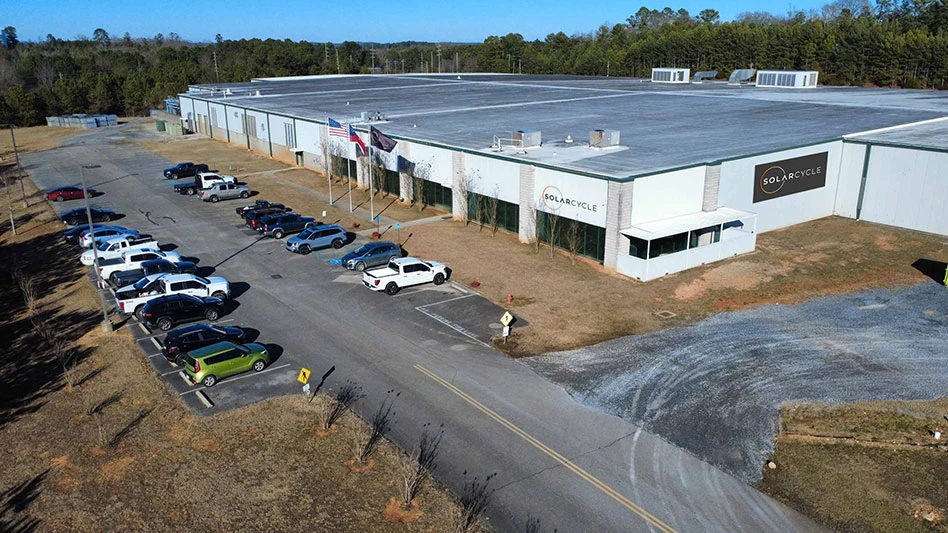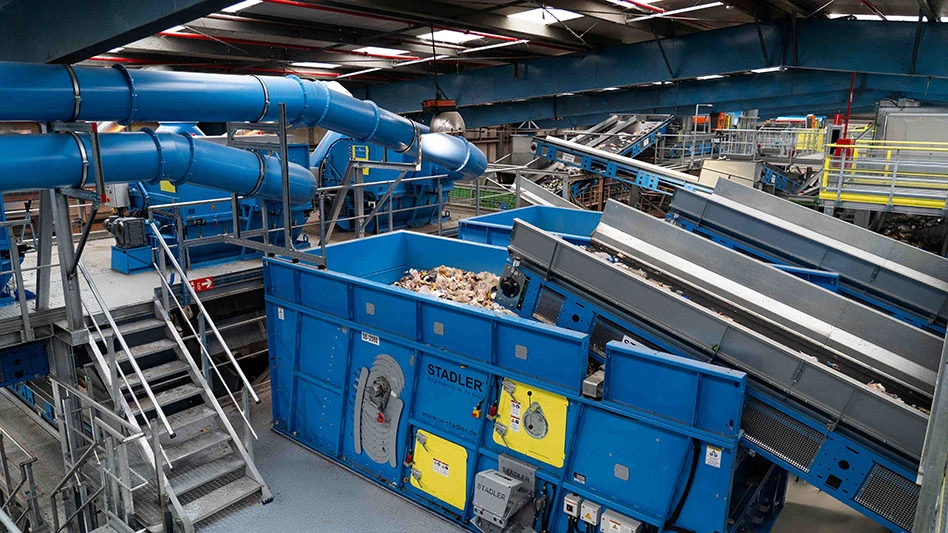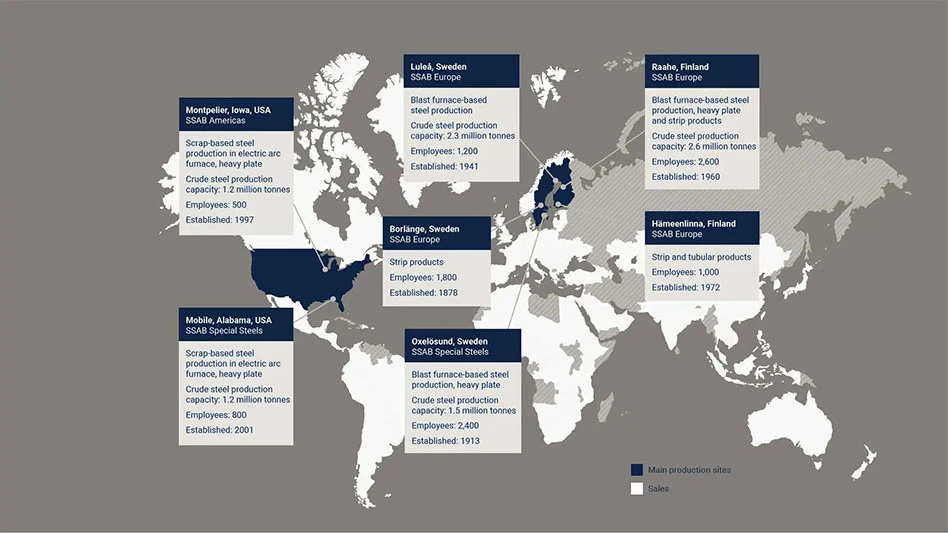
Photo courtesy of Novelis
In July, the U.S. International Trade Commission (USITC) began a fact-finding investigation, Greenhouse Gas Emissions Intensities of the U.S. Steel and Aluminum Industries at the Product Level, Inv. No. 332-598, to assess the greenhouse gas (GHG) emissions intensity of steel and aluminum produced in the United States. The investigation was requested by the U.S. Trade Representative (USTR) and will include a first-of-its-kind survey of domestic production facilities to catalog and report relevant emissions and other data supporting their emissions intensity assessment.
Among those testifying at the Dec. 7 hearing before the USITC were the Institute of Scrap Recycling Industries (ISRI) and the Aluminum Association, both based in Washington.
ISRI told the USITC that the U.S. recycled materials industry is helping to fight climate change by providing manufacturers with high-quality renewable materials as replacements for extracted resources, thereby lowering energy consumption and carbon emissions.
"Steel and aluminum are infinitely recyclable materials—no matter how many times a product is recycled, the material does not lose its strength or integrity," ISRI Assistant Vice President of International Trade and Global Affairs Adam Shaffer said. "The car you drove today may have been someone else’s refrigerator in a past life, or it could have been the bridge you drove over or even the metal can containing the food you had for breakfast."
According to ISRI, the steel and aluminum industries rely heavily on recycled materials to substantially lower their carbon emissions intensities, with nearly 70 percent of U.S. steel using recycled steel in its production, while 80 percent of U.S. aluminum is produced using recycled aluminum. The association also claims the U.S. steel and aluminum sectors are more efficient than their global counterparts, adding that only 30 percent of global steel is produced using recycled content primarily.
“The U.S. recycled materials industry plays a vital role in combatting climate change by promoting safe, economically sustainable and environmentally responsible recycling,” Shaffer said. “Broadly speaking in the United States, recycled commodities annually save the equivalent of nearly 400 million tons of carbon dioxide—equal to the energy use of 48 million homes for one year.”
Aluminum Association President and CEO Charles Johnson also testified before USITC, saying, “It is no exaggeration to say that there is no green energy transition without materials like aluminum. This growing shift has led to significant domestic investment—with nearly $10 billion committed or spent to build and expand U.S. aluminum plants and operations over the past decade. This includes the building of two brand-new, state-of-the-art aluminum rolling and recycling mills currently underway.”
RELATED: SDI confirms Mississippi site selection | Novelis to build $2.5B low-carbon aluminum recycling and rolling plant
In his testimony, Johnson called for three key actions by the commission as it continues its investigation:
- ensuring that the approach laid out by the USITC for collecting facility, process and product-level data most effectively provides the information that the USTR seeks;
- limiting the burden on affected facilities by developing a survey that only requests specifically relevant and material GHG emissions information; and
- fully incorporating the various ways that aluminum flows through processing systems into the USITC methodology to ensure their accurate understanding of reported industry data.
Over the past 30 years, the Aluminum Association says the carbon impact of North American aluminum production has been cut in half during a time of increased demand for the metal. Technological advancements including manufacturing process controls; efficiency improvements arising from economies of scale; the phasing out of old smelting technologies; and the replacement of coal-fired for renewable electricity in smelting have contributed to this positive trend.
Aluminum produced in North America is some of the cleanest aluminum in the world, the association adds. Making aluminum in China or the Middle East, which rely largely on coal and natural gas-based electricity, can be two-to-three times as carbon-intensive as making similar products in the U.S. and Canada.
Johnson concluded his testimony: “We share your goal to move toward ever more sustainable aluminum production. We hope and believe industry and government can work constructively together toward this shared purpose.”
The Aluminum Association adds that it will submit written comments on the survey and proposed methodology to the USITC in advance of the Jan. 5, 2024, deadline.
Tracking GHG gas reductions also is a focus for the International Aluminum Association, London, which launched an initiative it says “commits to transparently and publicly track ambition and progress in [the] greenhouse gas reduction of all its member companies,” which include Hindalco Industries, which owns Novelis, and Norsk Hydro, which has multiple melting facilities in the U.S. The initiative was launched in coordination with the United Nations Climate Change Conference (COP 28) in the United Arab Emirates (UAE).
As part of the initiative, IAI says it is committed to tracking and reporting on its member companies’ ambition and progress in GHG reductions and reporting total global GHG emissions of the aluminum industry on a public and annual basis.
Satish Pai, managing director of India-based Hindalco Industries and chair of the IAI board, also noted recycling's role in reducing the aluminum industry's GHG emissions.
Latest from Recycling Today
- ArcelorMittal legal battle with Italy continues
- Altor program boosts EPS recycling
- IP to spin off non-North American operations
- Flexible Film Recycling Alliance report outlines progress
- RERF opens Avagliano award nominations
- Eriez expands European sales network
- Gränges increases sales volume in 2025
- Aduro selects Netherlands as site for industrial scale-up facility

